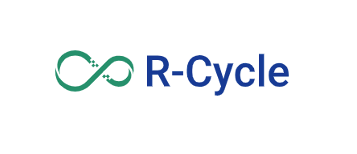R-Cycle: Sustainability case study
November 2023 by R-Cycle

An initiative from a consortium of plastics companies uses digitalization to power plastics recycling.
Plastic is often seen as the epitome of environmental pollution. Those involved in its production may point to the benefits it delivers to food safety, hygiene, and medical care, but they also recognize that this doesn’t get around a fundamental issue: plastic is not recycled enough, or to a high enough standard.
For high-quality recycling, two enablers are essential: fully recyclable packaging and sophisticated recycling processes. The first exists, but the second is hampered by presentday waste streams, with even fully recyclable packaging often not separated precisely enough to achieve high-quality recycling. In Germany for example, only about 6% of plastic from domestic waste is recycled to equivalent new products.

A new initiative, R-Cycle, tackles this issue of precise waste sorting by providing a digital product passport which automatically records all recycling-related properties during production. Precise information is passed along the value chain and made retrievable via an appropriate marker such as a digital watermark or QR code on the packaging. By using this information, waste-sorting lines can identify recyclable packaging.
R-Cycle is being developed by a cross-industry consortium of technology and plastic packaging companies who are designing an open and globally applicable tracing standard to permit seamless documentation stored on a common data platform. It’s accessible to any production equipment, processing, printing, and filling machines, and waste sorting and recycling lines.
In addition to improving waste sorting capability, manufacturers and processors of plastic packaging benefit in terms of process efficiency, quality, and complying with legal information requirements. Machines that are networked with the R-Cycle data platform obtain precise information about the primary products contained and add their own data accordingly. Converting or filling lines for packaging can configure themselves automatically, increasing efficiency and product quality in the production process and reducing production waste.
To develop a global standard, partnerships brokered through collaborative negotiation are essential.
The R-Cycle consortium’s thirteen different organizations include the Reifenhäuser Group. CEO Bernd Reifenhäuser says, “Sustainability is not a threat, but an opportunity to do things better. In this context, it is very important not to tackle big challenges alone. You have to find the right partners and act as a team.”

